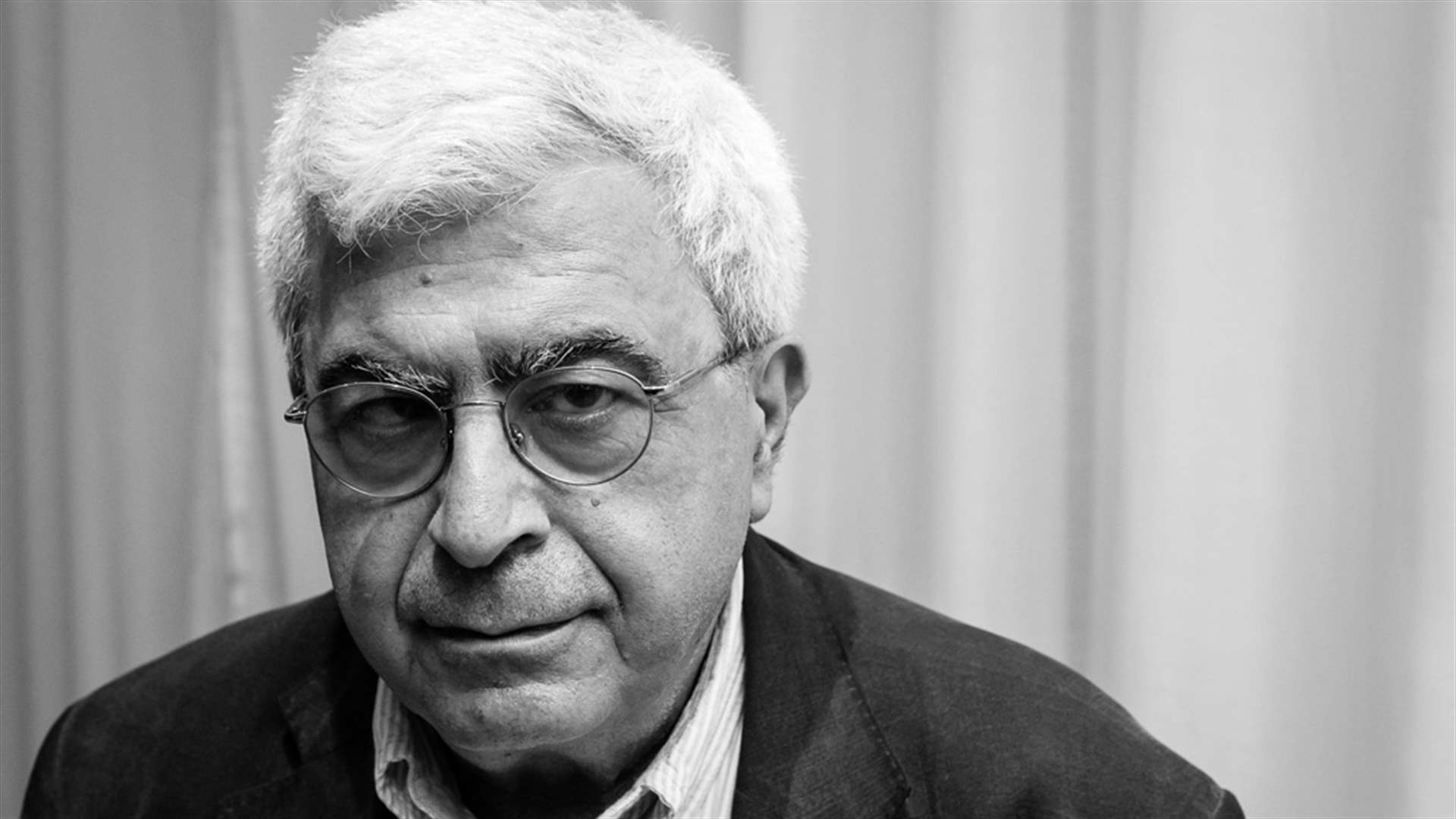On Sunday, September 15, 2024, Lebanese novelist, advocate and intellectual Elias Khoury passed away at the age of 76. Khoury had been ill for months, having been admitted and discharged from hospital several times over the past years.
To the chagrin of the region and the world’s population, Khoury’s death marked the passing of one of Lebanon and the region’s most prominent intellectuals calling for a free, democratic and independent Levant.
Khoury spent over half a century in novel writing, arts, journalism, the defense of freedoms, secularism and the Palestinian cause, and the upholding of the role of the intellectual as a truth-teller in the face of authorities and bringer of change.
Professional Career
Khoury is widely known for his novels and literary criticisms, which have been produced and translated into several languages. He holds a highly diverse bibliography, having written a range of different publications including novels, story collections, criticisms, plays and screenplays and a range of other literary works.
Khoury received a number of awards and honors, including the Prize of Palestine in 2000 for his famous book Bab al-Shams (Gate of the Sun), Al Owais Award in 2007 for “Stories, Novels & Drama” for his fiction writing, the Prix du roman arabe in 2008 for Comme si elle dormait (As Though She Were Sleeping) and the Mahmoud Darwish Award for Creativity in 2016. Relatedly, Khoury was a close friend of Mahmoud Darwish.
The intellectual worked in a number of different magazines, taking over the cultural section of the newspaper As-Safir. Afterwards, in 1993, he became the editor-in-chief of Al-Mulhaq, the cultural supplement of the Lebanese newspaper Al-Nahar, staying in this role until 2007. He then became the editor-in-chief of the Journal of Palestinian Studies.
Khoury also played an important role in Lebanon’s post-civil war cultural life through his role as artistic director of the Beirut Theater, and through leading the cultural opposition to the Solidere project, among other initiatives.
Khoury taught at a range of different universities in Lebanon, the United States, the United Kingdom, France, Germany and Switzerland. This includes his alma mater, the Lebanese University.
Political Legacy
Khoury was a pillar in the movement that called for a free Palestine, a democratic Syria and an independent Lebanon. He recognized the intersections of the multiple oppressions that the populations of the Levant are subject to, refusing to treat each country in isolation.
Together with late journalist Samir Kassir, Gisele Khoury and a range of intellectuals and organizers such as Ziad Majed, Farouk Mardam-Bey and others, Khoury formed a progressive, leftist movement that rejected authoritarian, discriminatory and dictatorial regimes across the region.
He opened the pages of Al-Mulhaq to the Syrian opposition and ardently believed in the “Damascus Spring”, a period of intense political and social debate after the death of President Hafiz al-Assad in Syria.
He became a loyal supporter of the Syrian revolution in 2011 and the general wave of revolutions across the Arab regions, which he described as having many elements, with the first fundamental element being that “they brought out our spirit, our beauty” as “the will to live emerged among the people.”
In 2004, he played a central role in the founding of the Democratic Left Movement in Lebanon and continuously contributed to progressive political circles in Lebanon and the region across numerous socio-political developments.
Beirut and the World Bid Farewell
In a tribute to Khoury, Megaphone described that Beirut “bid farewell to the writer who told its story and defended its memory.”
“Khoury delved into the depths of the city, searching for his characters in society’s outcasts,” the post added.
“For me, those people, marginalized and outcast from society, and so on… I feel like I resemble them a lot. I love to be resembling them,” Khoury mentions in one interview clip shown in the tribute.
“Secondly, these people teach me the language,” Khoury adds.
Megaphone itself was formed by a group of individuals who were inspired by Elias Khoury and his companions, and who stand committed to the intellectual’s vision of a free and democratic Levant.
In a tribute by Mada Network, another group whose founders were inspired by Khoury and his companions, the intellectual is described as “a resistance fighter who adhered to the cause of Palestine and its liberation, and resisted the ongoing [‘defeat’] for the sake of the future and the dream”, and as a “critic who stressed that our liberation requires a [‘third renaissance’], to absorb the defeat and develop our society towards democracy and freedom.”
In both his literary and political work, Khoury was dedicated to justice and revolutionary change. In his words, while “the writers will be forgotten, the truth that remains is the literary work.”
Beirut, Lebanon, Palestine, Syria, the Arab region and the entire world bid farewell to the ardent freedom advocate, the brilliant creative, and the committed intellectual.


